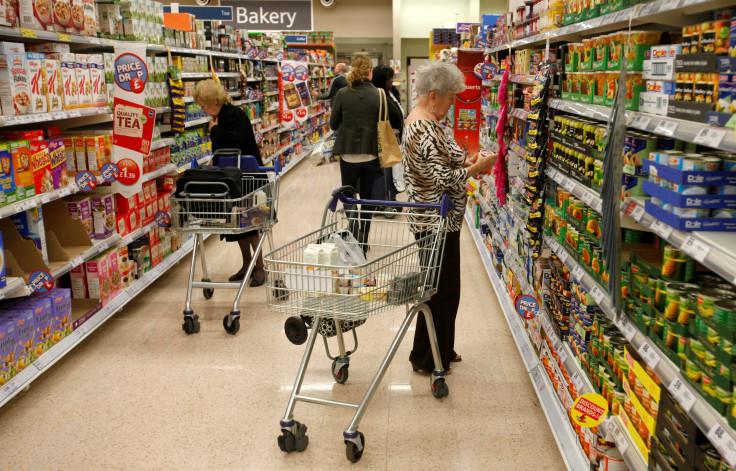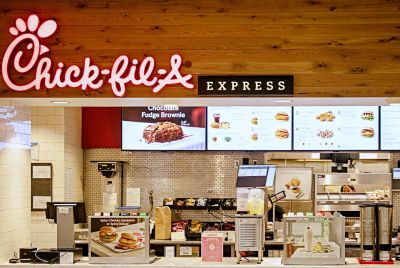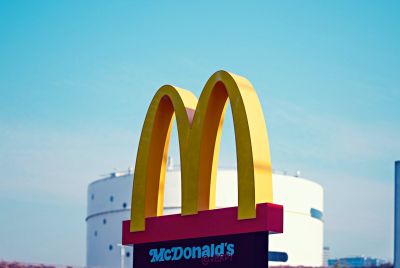Retail Sales Are At An All Time Low Since Lockdown, According to Reports
Due to the dramatic increase in prices across the UK, retail sale volumes are the lowest that they have ever been since 2021.

In October 2023, the number of products that were sold, marked the lowest volume of sales since February 2021.
Compared to last October, the Office for National Statistics found that retail sale volumes were 2.7 per cent lower this year.
Between January 2021 and March 2021, much of the UK had been ushered into COVID-19 lockdowns.
Considering retail sale volumes had already fallen by 1.1 per cent in September this year, the additional 0.3 per cent decline last month has exposed the UK economy for failing to grow.
According to the Bank of England, it is expected that the amount of goods and services produced by the UK will be restrained until 2025.
In October, the Office for National Statistics noted that fuel sale volumes fell by two per cent. The Office for National Statistics also recognised that the lack of fuel sales may have been affected by the "increasing fuel prices" across the UK.
Food sales decreased for the first time this year, falling by 0.3 per cent in October.
While supermarkets said that more food was being sold in October, specialist stores, like butchers and bakeries, saw fewer customers.
Sales at non-food stores, including homeware, clothing and hardware stores, declined by 0.2 per cent last month.
Retailers suggested that the current cost-of-living crisis in the UK and the transition into wetter weather have influenced the number of customers in shops across the nation.
With the cost-of-living crisis increasing prices at a pace that does not correlate to the average household income in the UK, supermarkets reported that they had noticed customers "were buying cheaper products and prioritising important items".
A recent analysis on inflation found that the rate that UK prices are rising, fell by around two per cent – from 6.7 per cent in October 2022 to 4.6 per cent this year.
Despite inflation slowing down, retailers have expressed that they are finding it too expensive to borrow money from banks to invest in stock.
Heather Bovill, the Deputy Director for Survey and Economic Indicators at the Office for National Statistics, also said: "It was another poor month for household goods and clothes stores with these retailers reporting that cost-of-living pressures, reduced footfall and poor weather hit them hard."
Regarding October's wetter weather, specifically, Storm Babet, according to reporters, "battered areas" in the UK, fuel retailers noted that the weather conditions also affected sales of petrol and diesel.
"Consumers were spending their money more cautiously, alongside the impact of bad weather," said one retailer.
Despite the October statistics demonstrating a clear decrease in retail sales, non-store retailers saw an increase of 0.8 per cent in sale volumes.
In September, sales in non-store retails, fell by a huge 2.4 per cent. The dramatic decrease was unexpected, due to e-commerce and online shopping becoming increasingly popular since COVID-19.
The Head of Retail and Consumer Goods at Lloyds Bank, Aled Patchett, predicts that the "dip in sales" suggests that customers are holding back on their spending due to a focus on "rising housing costs".
In his Autumn Statement next month, after exploring the government's taxing and spending strategies, Chancellor Jeremy Hunt will announce his plan to grow the UK economy.
The economy is set to benefit from the Christmas season, which usually marks the most successful trading period in the retail sector.
"We know from earlier in the year that in tough times consumers prioritise special events and family occasions, so retailers will be hoping that consumers are keeping their powder dry for a last-minute Christmas spending surge come December," revealed Lisa Hooker, the Leader of Industry for Consumer Markets at the PwC network.
© Copyright IBTimes 2025. All rights reserved.






















